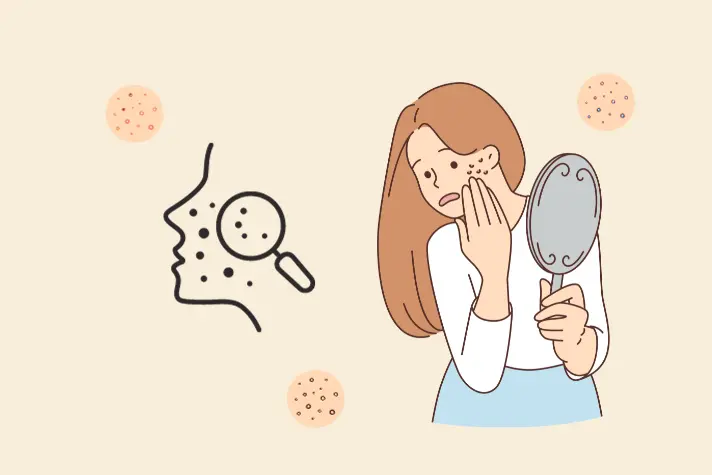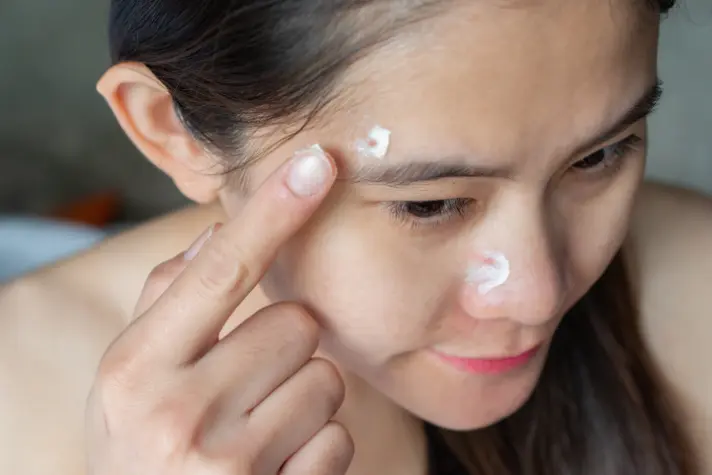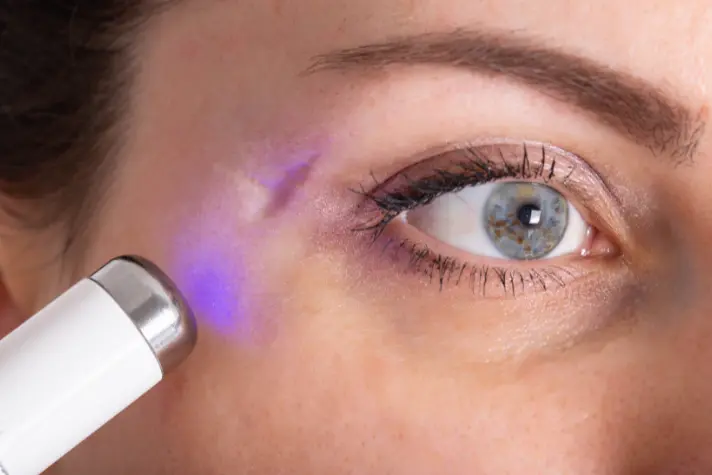
Having acne scars is a medical issue that affects millions of people. Sometimes these scars are mild and disappear on their own, but other times they leave permanent marks on our skin that last a lifetime.
Dealing with acne scars can feel like battling the ghosts of breakouts past. Are you tired of those lingering reminders on your skin?
We do not have to live with acne scars all our lives, there are remedies and procedures that can help our skin rejuvenate.
You may also like:
- Amazing Benefits of Using Repair Cream Daily
- How to Choose the Best Dermatologist for Your Skincare Needs
Understanding Acne Scars
First things first – what exactly are acne scars? These are the aftermath of acne lesions, where the skin’s natural healing process leaves behind visible marks.
Before diving into treatment options, let’s categorize these scars:
| Type of Acne Scar | Characteristics |
|---|---|
| Icepick Scars | Narrow, deep pits resembling a wound from an icepick. |
| Boxcar Scars | Broad depressions with sharply defined edges. |
| Rolling Scars | Wave-like undulations across otherwise normal-looking skin. |
How to Treat Acne Scars
Critical question time: How do you choose the right treatment for your unique skin? Consider factors like scar type, skin tone, and downtime tolerance. Consulting a dermatologist ensures a tailored approach for optimal results.
Depending on how severe the problem is, we can choose one of the following options or a combination of them.
1. Home remedies

Using home remedies to treat acne scars is the safest and most natural way since it does not have any side effects that pharmaceutical products may have. It is also the most affordable option and you will probably already have these staple foods and ingredients at home.
You can make DIY face masks from ingredients like lemon, honey, potatoes, cucumbers, tomatoes, olive oil, lime, aloe vera, sage, turmeric, baking soda, coconut oil, and ice. Most of them are natural moisturizers and are very rich in vitamins and minerals. Lemon juice has bleaching properties which will help remove dark spots and pigmentation.
Ever wondered about those DIY remedies for acne scars? Let’s separate fact from fiction:
| Myth | Reality |
|---|---|
| Lemon Juice Fades Scars: Can cause skin irritation and worsen pigmentation. | Hyaluronic Acid Soothes: Offers hydration and helps with scar appearance. |
| Coconut Oil Promotes Healing: May clog pores and lead to breakouts. | Rosehip Seed Oil Aids Repair: Rich in antioxidants, it supports skin regeneration. |
2. Acne scar creams

There are really a lot of these creams on offer, but you, of course, need to find the one that works well fast. Keep in mind that you have to deal with two aspects of acne marks: the first one being uneven skin and the second one discoloration. A good cream will address both issues.
It should also contain natural organic ingredients and the bare minimum of chemicals if any. Ideally, the cream would improve the texture of your scars without causing new breakouts, it would even out the pockmarks, bumps, and holes, fade dark spots, neutralize discoloration, and have fast long-lasting effects.
When choosing your cream, you should look for creams that contain cortisone if you are dealing with redness, swelling, and inflammation, and if you are only looking to deal with dark spots, choose creams that contain Kojic acid, arbutin, and Vitamin C.
3. Laser skin resurfacing

If after having applied creams, ointments, and face masks you still have scars and dark spots on your face, it is a good idea to consult with a professional.
A dermatologist will be able to advise you on the best cosmetic procedure for your skin and condition. Basically, there are several laser procedures available.
- Ablative lasers use multiple focused beams of laser energy to penetrate the skin at various depths, depending on the need, and they deal with deep wrinkles, skin texture, and discoloration allowing the smoother skin to replace the old skin.
- Non-ablative lasers work on boosting your skin’s collagen production without obstructing the surface of your skin. They beam through the skin and are usually painless. This procedure removes mild wrinkles, redness, pigmentation, and unwanted hair.
- Fractional skin rejuvenation, also called Fraxel laser treatment, is the latest procedure and it is sublative, which means that it works at both the epidermal and dermal layers of the skin, combining the previous two methods into one. It deals well with signs of aging, sun damage, and especially acne scarring. Unlike traditional ablative and non-ablative modalities, it is useful on the neck, chest, and hands as well, but it tends to work better on dark skin types.
Prevention Is Key
What about preventing scars in the first place? Prompt acne management is crucial. Avoid picking at blemishes, as it increases the risk of scarring. Opt for non-comedogenic skincare products and sunscreen to shield your skin.
It is important to take your skin seriously and not make the problem worse by picking or squeezing your acne. Don’t touch them with unwashed hands and leave them alone when not applying remedies. Stay out of the sun, use sunscreen with a high SPF, and seek professional help if your scars don’t disappear.
Time, Patience, and Consistency
Can you speed up the scar-fading process? Unfortunately, there’s no overnight magic. Consistency is key. Stick to your chosen treatment plan and give your skin the time it needs to heal and regenerate.
About The Author:
Stacey Smith is a freelance health writer. She is passionate about writing about women’s health, dental health, diabetes, endocrinology, and nutrition and provides in-depth features on the latest in health news for medical clinics and health magazines.


![[Adult Acne] Common Causes, Remedies, and Best Treatments Adult Acne](https://www.safeandhealthylife.com/wp-content/uploads/2023/02/Adult-Acne-150x150.jpg)
![[Infographic] Life with Acne: Managing and Embracing Healthy Skin Habits Life with Acne](https://www.safeandhealthylife.com/wp-content/uploads/2023/10/Life-with-Acne-150x150.webp)
